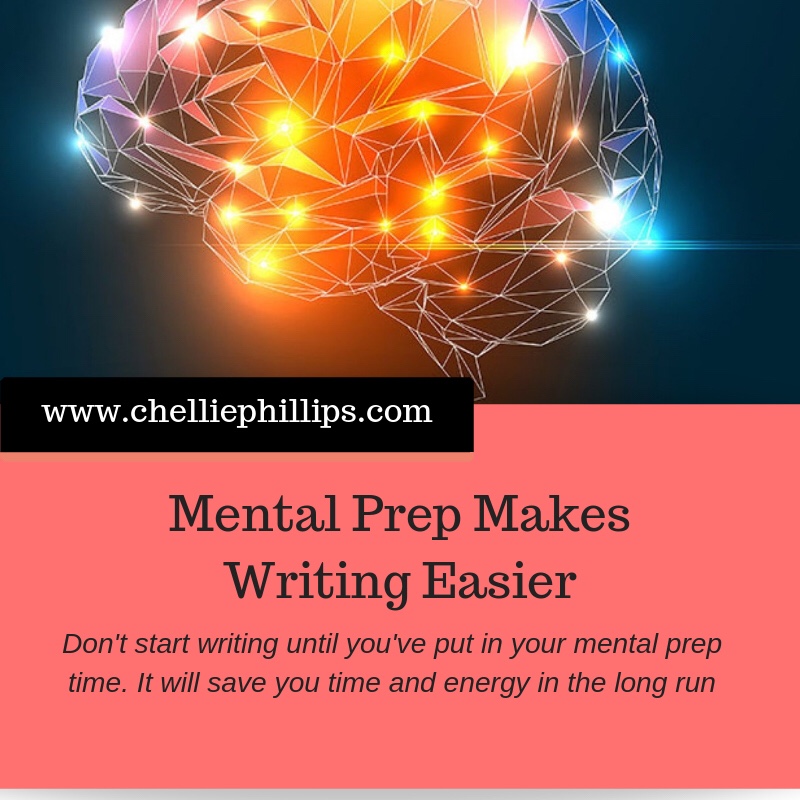
Don’t start writing until you’ve put in your mental prep time. It will save you time and energy in the long run.
Mike Long (mikelongonline.com or @mikewrites), an award winning speechwriter, screenwriter and instructor at Georgetown University said all writers should go through a 3 step process.
1. What are you trying to say? You need to be able to say what you are trying to say. Thinking it out isn’t enough. Write it down. Your core idea should be able to fit in a sentence 9 words or less. Your core idea should avoid the word and. If you have “and” in that sentence, it means you are writing two things.
2. Who are you writing it to? Give the group a name. If the word “and” appears (ex. husbands and parents), consider creating two separate messages.
3. Why are you telling them this? Do you want them to do something or know something? If you want them to do something, tell them what it is and have a call to action. If you want them to know or feel something, omit the call to action.
Long said it’s important to be still before you write. Remember writing is thinking. Most writers want to “have written.” It feels good once you are through. Writing helps you work through issues. So expect changes. Don’t expect perfection. Expect second and third drafts.
One area writers don’t think about enough is the title.
“It’s important to come up with a title to focus your efforts,” Long said. Writers need to put in the mental effort to come up with a phrase that invokes what you are trying to say.
It’s also important to know what you are being asked to communicate.
“When in doubt, it’s okay to ask,” Long said. “You’re going to have to anyway. Anything you do before you know for sure, you may have to be done again. You don’t want to look like an unprepared idiot.”
Discipline yourself to create and follow a structure. Make a list of things you want to hit in the story.
Long said outlining may feel like you’re elevating formality over the process. In reality, it helps you be creative an not burden yourself with organizational structure.
Speeches and articles are stronger when they contain stories and examples. People enjoy them and they learn from them.
Long suggested writers keeping a notebook handy to write down ideas or scenes when they occur. For the tech savvy, he offered another suggestion.
“I’m using the Record Now app,” Long said. “When I think of a funny phrase or see something, I record it and transcribe it later. I record plot ideas, images, articles, and people I’ve seen.”
Once you’re mentally ready, look at your writing environment.
“Be good to yourself,” Long said. “Be physically comfortable. Work in short bursts. Take frequent breaks. Use the online timer trick and make yourself write for a set amount of time. Surround yourself with things that make you happy. I look around and see color and images that inspire me.”
Feeling stuck? Long said it’s all in your mind.
“Writers block doesn’t exist. It’s a fear of what you put on paper isn’t as good as what’s in your head. Words bring about feelings. Accept that and move on. First drafts aren’t final drafts. Give yourself permission to revise and rewrite. Can you say it simpler. Talk it out. How would you say it to a friend? Be communicative, not fancy or professorial. Don’t try to impress people. Just try to be understood. What you want is what ever effective writer and speaker wants – to be understood and have someone feel the passion and feelings you feel. You get that from speaking as plainly as possible about what matters.”
When you put some mental work into writing before you put pen to paper you’ll be on the path to a better story. It’s not about impressing people. It’s about getting your message across and not wasting your readers time. The less time you spend writing, the happier everyone is.
2024 Year in Review: Building Culture Together
As 2024 comes to a close, I’m reflecting on a year filled with growth, connection, and insights that inspire stronger cultures and teams. From top blog posts to personal highlights, join me in celebrating the milestones and looking ahead to a thriving 2025.


